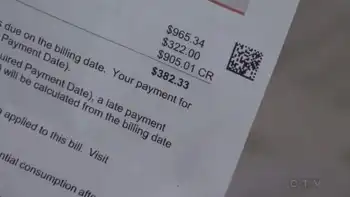California Governor Takes Stand Use Of Seawater
CALIFORNIA -- - Lt. Gov. Cruz Bustamante, who is running for governor in the California recall election, is on record opposing the continued use of seawater to cool the Morro Bay Power Plant.
But his stance is unlikely to derail the expected state Energy Commission approval of Duke Energy's plans to modernize the five- decade old plant.
In June, Bustamante sent a letter to the Energy Commission's committee reviewing the modernization plan. It urged that it not allow Duke, which owns the plant, to keep pumping ocean water for cooling. "As chair of the State Lands Commission, I fear allowing Duke Energy to water-cool the Morro Bay plant will set the precedent for other future projects throughout the state," reads Bustamante's letter to commission Chairman William Keese.
Bustamante could not be reached for comment. The gubernatorial candidate adds his voice to numerous environmental groups and several state agencies urging that the new plant be required to use another method such as dry cooling, which uses large fans to cool off steam pipes.
Duke has stated it won't replace its aging plant if it can't use seawater for cooling, saying that other technologies are too costly. Company officials say they can continue to operate the existing plant for decades longer.
And the city of Morro Bay won't allow dry cooling because it's noisy and the towers used with this method are unsightly. In late April, the two-man review committee headed by Keese endorsed seawater cooling. The city of Morro Bay and Regional Water Quality Control Board staff also support it.
"California should not allow the corporate interests of out-of- state companies to use inefficient and outdated technology -- like the once-through seawater cooling -- to make a profit at the peril of our environment and economy," Bustamante wrote.
Duke is based in Charlotte, N.C. The energy company wants to replace its boiler plant in Morro Bay with a smaller, more efficient turbine-powered facility. Under its proposal, seawater would continue to be taken from the Morro Bay Estuary to cool steam for re- use in the plant. A study conducted for the modernization project concluded that once-through seawater cooling will kill 17 percent to 33 percent of the larvae of certain species of fish, crabs, clams and other sea life in the estuary.
The Energy Commission's siting committee concluded seawater cooling would kill 13 percent of the larvae.
Duke claims the figure is 8 percent to 10 percent. The committee's April proposed decision concluded that dry cooling was not feasible in Morro Bay. The water board staff's draft permit, released last year, suggests Duke pay between $12.5 and $25 million for environmental projects in and around the estuary to make up for the expected ecological damage. The water board could take up the project in December.
Should Bustamante win the recall election, his stance on the issue could become Energy Commission policy.
But he couldn't kill the project with the wave of a pen. "The governor's office plays no part in the Energy Commission's business," said Chris Davis, an agency spokesman. "The governor's office has never intervened that way."
Energy commissioners are appointed by the governor and confirmed by the state Senate.
The governor can't remove them from office.
But the governor can issue executive orders that guide policy. Gov. Gray Davis did that in 2001 when he ordered the expediting of small power plant projects, the commission's Davis explained. That order came at the height of the state's energy crisis and was an attempt to jump-start the building of more power plants.
Using seawater at power plants is being studied by the commission. Davis said the commission already has a policy on the use of fresh water, and is working with other energy agencies on a policy for seawater. That work won't be done in time to affect the Morro Bay project. It's unknown when the commission will address the seawater issue. Duke's plans for Morro Bay are expected to go to the full commission for a final vote this fall.
Related News

Electricity subsidies to pulp and paper mills to continue, despite NB Power's rising debt
FREDERICTON - An effort to fix NB Power's struggling finances that is supposed to involve a look at "all options" will not include a review of the policy that requires the utility to subsidize electricity prices for six New Brunswick pulp and paper mills, according to the Department of Natural Resources and Energy Development.
The program is meant "to enable New Brunswick's pulp and paper companies have access to competitive priced electricity," said the department's communications officer Nick Brown in an email Monday
"Keeping our large industries competitive with other Canadian jurisdictions is important," he wrote, knocking down the idea the subsidy…




